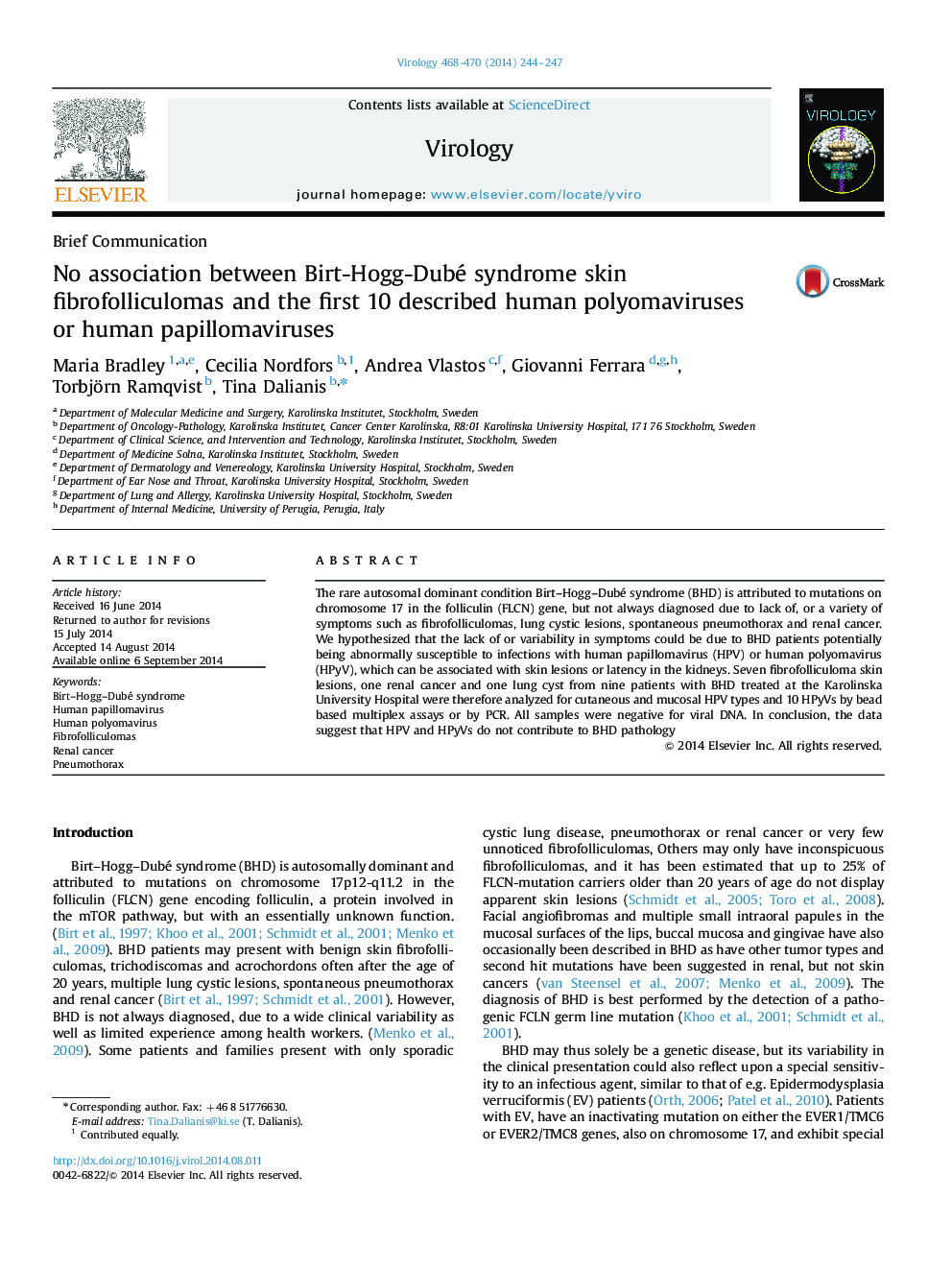| Article ID | Journal | Published Year | Pages | File Type |
|---|---|---|---|---|
| 6139889 | Virology | 2014 | 4 Pages |
â¢Birt-Hogg-Dubé syndrome (BHD) is autosomal dominant disease with variable symptoms.â¢BHD lesions were tested for human papillomavirus (HPV) or polyomavirus (HPyV).â¢BHD lesions were negative for HPV and 10 HPyVs suggesting they did not contribute.
The rare autosomal dominant condition Birt-Hogg-Dubé syndrome (BHD) is attributed to mutations on chromosome 17 in the folliculin (FLCN) gene, but not always diagnosed due to lack of, or a variety of symptoms such as fibrofolliculomas, lung cystic lesions, spontaneous pneumothorax and renal cancer. We hypothesized that the lack of or variability in symptoms could be due to BHD patients potentially being abnormally susceptible to infections with human papillomavirus (HPV) or human polyomavirus (HPyV), which can be associated with skin lesions or latency in the kidneys. Seven fibrofolliculoma skin lesions, one renal cancer and one lung cyst from nine patients with BHD treated at the Karolinska University Hospital were therefore analyzed for cutaneous and mucosal HPV types and 10 HPyVs by bead based multiplex assays or by PCR. All samples were negative for viral DNA. In conclusion, the data suggest that HPV and HPyVs do not contribute to BHD pathology
